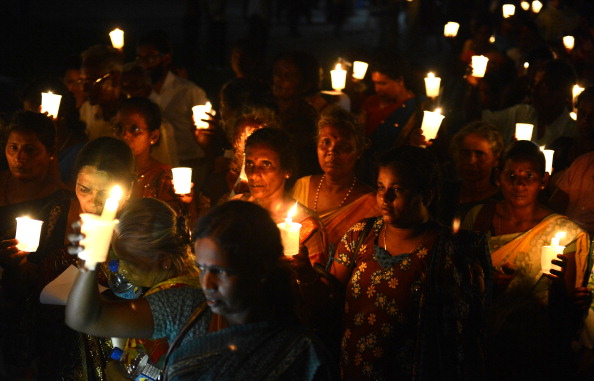In August 2006, toxic waste was brought to Abidjan, Côte d’Ivoire on board the ship Probo Koala, chartered by oil-trading company Trafigura. This waste was then dumped in various locations around the city, causing a human rights tragedy.

A picture taken on September 29, 2008 shows a woman whose face is disfigured, reportedely due to the dumping of toxic waste in August 2006. Credit: AFP/Getty Images
More than 100,000 people sought medical attention for a range of health problems and there were 15 reported deaths.
Three years after the tragedy justice seemed imminent: on September, 23 2009, the High Court of England and Wales approved a $45 million settlement between nearly 30,000 victims of the toxic waste dumping and Trafigura.
More than one year after reaching the settlement victims are still waiting to receive compensation.
The process to distribute the compensation to the victims has been plagued by repeated delays. In late 2009 a group calling itself the National Coordination of Toxic Waste Victims of Côte d’Ivoire (CNVDT-CI) claimed to represent the 30,000 victims who had reached the out-of-court settlement in the UK with Trafigura. However, all of the claimants in the case were actually represented by a UK law firm and under the terms of the UK settlement, endorsed by the UK High Court, only this firm – Leigh Day & Co. – had the mandate to distribute the US$45 million compensation settlement to the claimants. Despite this in February 2010 a deal was agreed between Leigh Day and CNVDT-CI over distribution.
Amnesty International has repeatedly expressed serious concern about the role of CNVDT-CI, whose claim to represent the 30,000 victims involved in the UK settlement is patently untrue. Many of the claimants have stated that CNVDT-CI does not represent them.
By July 2010, an estimated 23,000 people had received their compensation, but shortly thereafter the process was halted for reasons that are not clear. In September 2010 CNVDT-CI began a new distribution process. However, recent reports suggest that the process has once again ground to a halt with thousands of legitimate claimants still awaiting payment. The future of the remaining compensation funds is not clear and we are concerned that the delays and lack of transparency around the process may be enabling the misappropriation of the funds.
We are urging the government of Côte d’Ivoire to step in and ensure that all of those who are entitled to compensation receive it in a process that is transparent and fair.



